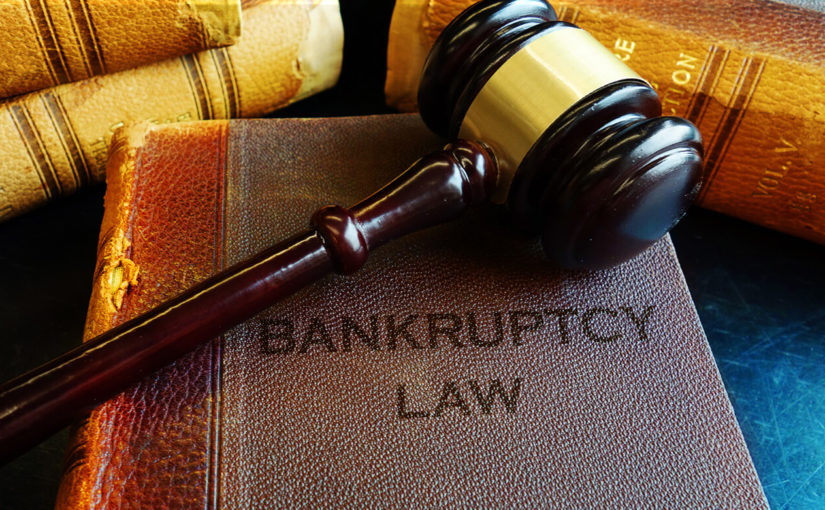
Interviewer: I didn’t realize that it works that way with divorce. Let’s go ahead and touch back what you said on Chapter 13. What would people need to do to qualify for 13 and what would be the true benefit of filing Chapter 13?
A Chapter 13 Bankruptcy Is a More Prolonged Process
Jeanne: If Chapter 7’s the short one, Chapter 13 is the long one. The Chapter 13 filing is basically a way of dealing with certain debts with future income and Chapter 13 gives the bankruptcy a wonderful toolbox to work with to deal with secured creditors. Remember, Chapter 7 for the most part is going to flush unsecured debt and you have to deal with secured creditors on your own, for example, you’re going to continue making payments on your car or home.
Payment Plan: A Chapter 13 Bankruptcy Helps to Protect Secured Assets That You Must Continue to Pay For
A Chapter 13 would apply if, for example, you have had a car repossessed or your house is in foreclosure. Both of those creditors are secured creditors and what you want is you want a way of resolving the debt problem in a way that you can handle, that’s not overly onerous to you.
You file what’s called a Chapter 13 and once you propose a plan and that takes into account your future income on a monthly basis, you will pay a certain percentage of your disposable income into the plan. The plan is going to address the arrearage on the house or the car.
Your Debt Is Prioritized in a Chapter 13 Bankruptcy
It does ultimately also include unsecured creditors but the debt is prioritized. This way, creditors like your mortgage company and your car or child support that you owe, which are more significant and more important are addressed first. The credit cards and medical bills and signature loans go to a place at the end of the line.
Interviewer: They’re still making a payment. It’s just that someone else is directing where that money goes.
Jeanne: That is right and for instance, in a mortgage situation, if you make your monthly payments, everything’s great. Then lose your job or you have a reduction in income and you start to get behind. Well say, it goes two or three months and then you are reemployed or you get a second job and you start making catch up payments to the mortgage company.
If this is September and you make a payment, it won’t be applied to September. It will be applied to May or April whenever what’s behind and so, you continually run in a deficit until you get totally caught up.
A Chapter 13 Bankruptcy Filing Can Forestall Your Home Being Placed in Foreclosure
Well, most mortgage companies have guidelines and policies. Once you get so far behind or so many months go by and you still haven’t reduced any deficit, their corporate rules dictate that you have to be placed in foreclosure. Even if you say, “I am five months behind but the last three months, I’ve been making payments and if you give me another six months I’ll have this cleared up.” but they say, “Well, you’ve reached the end of what we can do and we place you on foreclosure.” If you file a Chapter 13, the mortgage company is forced to deal with your payment schedule on the arrearage.
Once you filed Chapter 13, you have to start making the current payment but all of the arrearage is turned off and is treated on a separate accounting track in the bankruptcy. You are permitted take up to five years to pay that deficit.
The State of Texas and the Homestead Exemption
Interviewer: I used to deal with real estate many years ago and I would always hear about something called the homestead law. I’m not a lawyer so I really don’t know but is that specifically like for the sake of taxes like you said? Does that fall into bankruptcy? Does that give you some kind of protection?
In Texas, the Homestead Exemption Protects Your Home from Action Bought by Other Creditors
Jeanne: When you designate an asset as a homestead, and again I’m going to speak only on Texas law, it protects you basically inside or outside of bankruptcy against other creditors. You owe the hospital $200,000. You can owe Visa $100,000. You can owe your uncle Joe $500,000 and they can sue you and they can get a judgment. But, under the homestead law, they can’t take your house.
The mortgage company has a lean against that property and they can take your house. The Homestead exemption protects you from other creditors wanting to come in and take your property, but if you don’t pay where you stay, you’re going to lose it because there’s a lean and that gives them the right to institute foreclosure procedure.
Interviewer: If there isn’t a lean and is somebody paid off their house and then they accrue all these medical bills, nobody could legally come in and take their home either way.
Jeanne: That places a very high premium on your homestead and your household goods. In other words, Texas is going to keep you whole because it doesn’t do you any good to be out on the streets. Now there are some states that aren’t like that.

